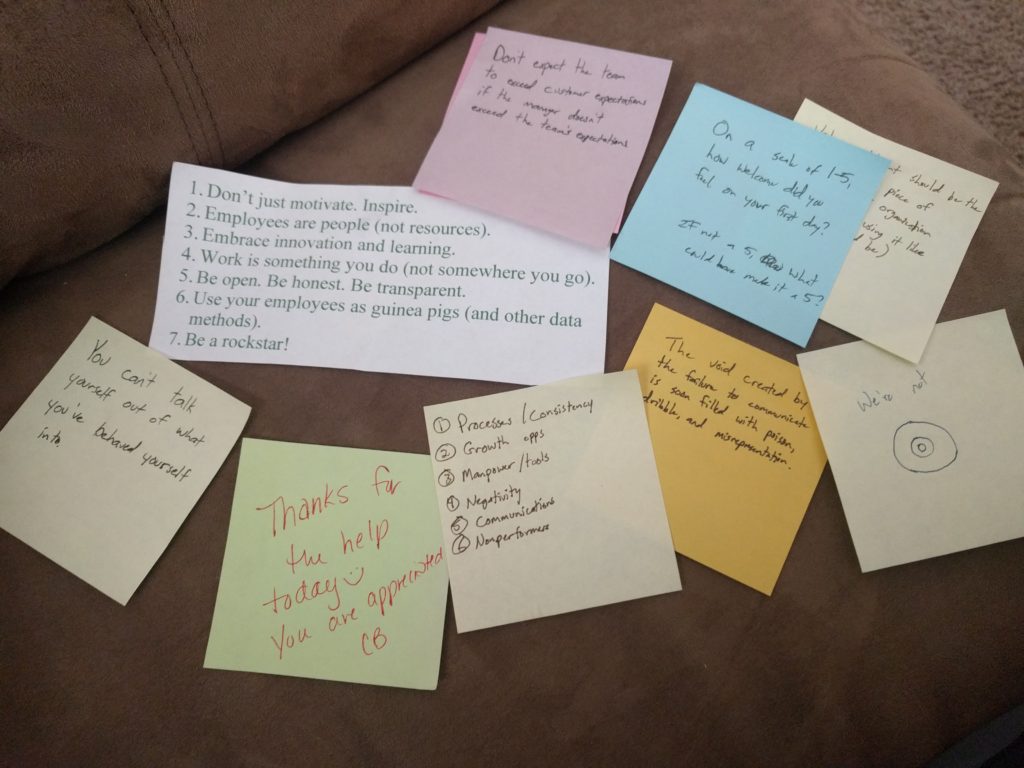Thanks to my wonderful wife for the idea for this one.Â
 One of our traditions every year is to watch Christmas Vacation (no, not with the kids!) While it’s not my favorite (that spot is held by It’s a Wonderful Life), it always gives me a laugh and reminds me to focus on the important things during the Christmas season.
One of our traditions every year is to watch Christmas Vacation (no, not with the kids!) While it’s not my favorite (that spot is held by It’s a Wonderful Life), it always gives me a laugh and reminds me to focus on the important things during the Christmas season.
One of the memorable scenes in the movie is when Clark opens up what he expects to be a holiday bonus only to find a “jelly of the month” membership card. After all kinds of crazy experiences, that bonus was his last opportunity to bring some sense of closure to the season by giving an amazing gift to his family (a pool). When he finds out that it’s basically a certificate for twelve free jars of jelly, he snaps, ranting and raving about his boss, the company, and more.
I’ve been a key part of many compensation and bonus reviews over the years, and there are some excellent lessons we can all learn from this story.
Expectations Matter
During the movie, Clark talks with a friend about his big plan to put in a pool. He even carries around a brochure to look at and share when necessary, demonstrating how excited he is about the coming bonus. The reason he ultimately flips out at the end of the movie is because his expectations did not match reality.
The parallel is obvious. If we are going to provide some sort of bonus, whether holiday-related or not, we should ensure that expectations match reality. You can do some prep work, laying the foundation and expectations beforehand to ensure nobody is disappointed (or at least a minumum of disappointment occurs, because it’s hard to please everyone).
At a previous employer, my colleagues and I worked on an annual conference that required dozens of hours of preparation and delivery work. The first year we each got a very small gift card as a reward, and the second year we got nothing at all, despite the event making hundreds of thousands of dollars in profit. How long do you think a company like that will have an engaged, productive workforce? Hmmm…
Value Should Mirror Contributions
In Christmas Vacation, Clark is particularly excited because his work performance was recently recognized as above average. He created a valuable product for his employer, and he expected his bonus to mirror that level of contributions.
When it comes to offering rewards, recognition, and bonuses for performance and results, be sure the result is related to the level of the employee’s contribution. Someone saved the company $2 million by reducing waste? Don’t give them a $25 gift card and call it a day. An employee creates a new process that reduces customer churn by 10%? They expect more than a pat on the back and a template “thank you” note.
This isn’t an invitation to be overly extravagant, but think about it this way: do you want those people to continue innovating and creating new value for the company? If so, reward them well, and create a virtuous cycle of value for everyone involved.
Discriminate. Heavily.
We’ve been drilled that discrimination is a bad thing. In reality, discrimination is wonderful–it’s illegal discrimination that needs to be eliminated. Some of your employees are going to do their jobs and go home, never adding more value or creating unique opportunities for growth. While those people need some sort of recognition for getting the job done, the ones that create more value need to be treated differently. As I mentioned in my post about how to hire and manage creative people:
Whatever label we stick on them, we need to treat them differently from the rest of the employees. Yes, this scares the pants off most HR pros, because we've been taught to treat everyone the same. But it's madness when you think about it. Equal treatment for unequal performance/productivity/contributions is a surefire path to mediocrity.
When I managed compensation reviews, it always drove me crazy to see our highest performers getting a 4-5% raise and our lowest performers getting a 2-3% raise. That ~2% split wasn’t enough to truly reward our great people and create an incentive for continued stellar performance. My only consolation was the bonus pool that I was able to help work with managers to direct more toward those individuals that offered more than their “fair share” of value to the company.
Public or Private Praise?
The examples we’ve been discussing don’t have to include a moment of public praise, but they certainly could. Here’s a story I’ve told before about two very different methods for showing appreciation for the contributions of an employee or team.
Presenting work awards is one part of the employee recognition process. If you are going through the trouble to nominate someone, process the paperwork, and get them an award, wouldn't you like people to know about it? Apparently not everyone believes that. Here’s an example of the wrong way to value the contributions of your people:
I was talking to a friend recently and heard this sad story. A handful of employees received awards for superior performance. It was the first time the work group had received awards, so it was a special occasion for the staff members who earned the kudos. However, the manager quickly stepped in and made it known that the awards were not to be communicated internally. Nobody could know that the employees had been rewarded for their efforts.
My take on that situation is multifaceted. First, the manager is missing out on a great opportunity to share about their people. Point out how well they did and encourage others to do the same (or better). And the people who received the awards? You could have given them half as much money and public praise would have made up the difference. Praise has significant value when people don't receive it often (not that you should withhold it just to make them appreciate it more!)
So, what’s a better way to wrap in public praise without making it awkward? Here is how I liked to do it when I managed a corporate HR function.
One year we had a major corporate office relocation, and it was quite an ordeal. After the dust had settled, the team who made the move possible all received financial awards as a “thank you†for all the hard work, but we wanted to make sure it was more meaningful. Check out the email below that went out as the public praise for the team.
—–
We've talked about it before, but recently the corporate office moved to a new location. On the outside, it was a fairly simple affair; however, from the inside there was an astounding amount of work that had to be completed. Not to be dissuaded, a few people really stepped in to make that transition as easy as possible. They picked up extra duties, worked long hours, and fought the good fight with vendors and builders to make sure this space was everything we needed it to be.
For their efforts, each of the employees mentioned below received an award as a token of appreciation; we wanted to offer this bit of public praise as well. To those of you who made it all possible, we all appreciate you very much.
(Employee names removed for this post)
Thank you for your support! You truly embody our core value of Unequivocal Excellence in your work.
—–
At the end of the day, it’s critical to believe that your employees want to do great work. And in your role as an HR/talent leader, it’s crucial for you to coach managers, offer tools and guidance, and help create opportunities for people to be recognized for what they do. I can guarantee that they won’t be disappointed like our dear friend Clark.
How do you make sure your people feel appreciated and rewarded for their work? Do you have a unique way of making it personal and appealing for the recipient?Â



 One of our traditions every year is to watch
One of our traditions every year is to watch